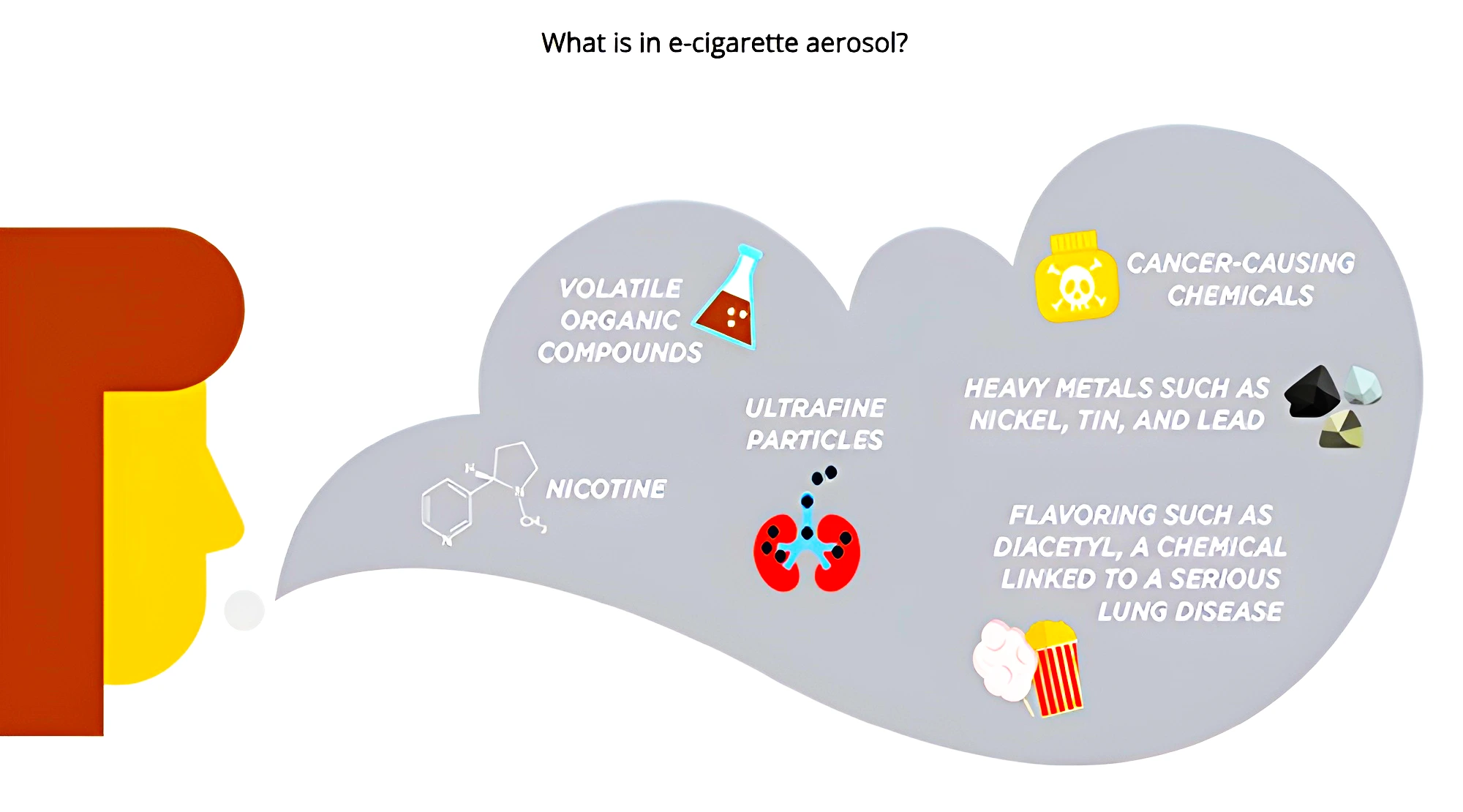Context: According to the World Health Organisation, urgent action is needed to control e-cigarettes to protect children, as well as non-smokers and minimize health harms to the population.
Urgent Action’ Needed to Control E-cigarettes: WHO
- Accessibility of E-Cigarettes: According to WHO, electronic cigarettes have been allowed on the open market and aggressively marketed to young people.
- Regulation on E-Cigarettes: 34 countries ban the sale of electronic cigarettes (including India), 88 countries have no minimum age at which electronic cigarettes can be bought and 74 countries have no regulations in place for these harmful products.
- Usage of electronic cigarettes: Children 13–15-years old are using electronic cigarettes at rates higher than adults in all WHO regions.
About e-Cigarettes
- Electronic cigarettes: They (electronic nicotine delivery systems -ENDS) come in many shapes and sizes. Most have a battery, a heating element, and a place to hold a liquid.
- It is also known by other names — vapes, e-hookahs, and e-pipes.
 Electronic cigarettes Aerosol: Electronic cigarettes produce an aerosol that usually contains nicotine flavorings and other chemicals that help to make the aerosol.
Electronic cigarettes Aerosol: Electronic cigarettes produce an aerosol that usually contains nicotine flavorings and other chemicals that help to make the aerosol. - Other Uses: Electronic cigarettes can be used to deliver marijuana and other drugs.
- Regulation of e-Cigarettes in India: Prohibition of Electronic Cigarettes Act, 2019.
- It was enacted to prohibit the production, manufacture, import, export, transport, sale, distribution, storage and advertisement of electronic cigarettes.
What are the health risks associated with e-cigarettes?
Electronic cigarettes with nicotine are highly addictive and are harmful to health. Whilst long-term health effects are not fully understood, it has been established that they generate toxic substances, some of which are known to cause:
- Cancer and increase the risk of heart and lung disorders.
- A 2018 study found the use of electronic cigarettes daily was associated with a 79% increase in heart attack risk after other variables were taken into account.
- Affect brain development and lead to learning disorders for young people.
- Fetal exposure to electronic cigarettes can adversely affect the development of the fetus in pregnant women.
News Source: TH
![]() 15 Dec 2023
15 Dec 2023
 Electronic cigarettes Aerosol: Electronic cigarettes produce an aerosol that usually contains nicotine flavorings and other chemicals that help to make the aerosol.
Electronic cigarettes Aerosol: Electronic cigarettes produce an aerosol that usually contains nicotine flavorings and other chemicals that help to make the aerosol.